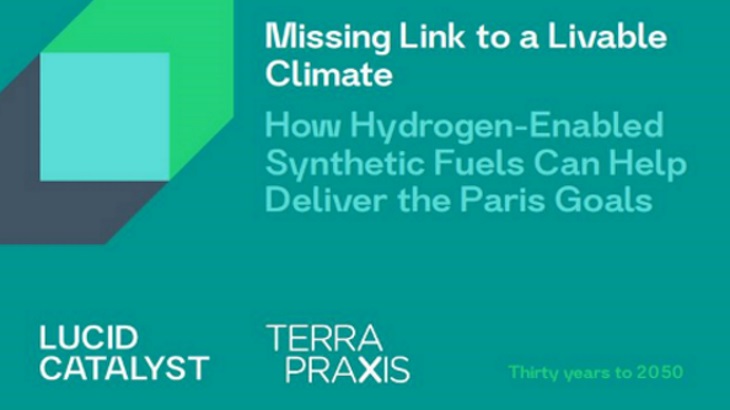"The potential of advanced heat sources to power the production of large-scale, very low-cost hydrogen and hydrogen-based fuels could transform global prospects for near-term decarbonisation and prosperity," the report says. "While it sounds daunting to achieve the scale of production needed, the scalability and power density of advanced heat sources are a major benefit. By moving to a manufacturing model with modular designs, it is possible to deliver hundreds of units in multiple markets around the world each year."
The clean energy from these units, combined with "aggressive" renewables deployment, gives a much better chance of achieving the Paris goals of limiting warming to 1.5 degrees Celsius in the very limited time available, it says, and maximising the opportunity thus requires action without delay.
First, this study shows how scalable, cost-effective hydrogen can be produced in the near term.
"For too long, risks associated with advanced heat sources have been considered outside of the context of risks with other technologies. In addition, all clean energy investments should be reviewed with due consideration of the risks of failing to decarbonise," the report says. To facilitate informed decision-making, it says that government and industry should immediately issue requests for information and seek quotes for shipyard manufactured plants and begin commissioning refinery-scale clean fuels production now.
Shipyards are "masters of cost, scale, and engineering integration" and their "tightly integrated design and manufacturing processes", combined with onsite steel mills and long-term supply chain relationships, "offer exactly the needed heavy manufacturing components and equipment," the report says.
Domestic and global zero-CO2 hydrogen market development along with existing and emerging global and domestic zero-carbon hydrogen policy initiatives should be "technology inclusive", it says. They should be focused on key outcomes related to cost and scale of production, creation of zero-carbon hydrogen markets, and increased market share for zero-carbon fuels, it adds.
A fourth point it highlights is access to finance. "In the same way that investors must take a portfolio approach to investments in order to reduce exposure to risk, global efforts to limit climate change should be spread across a portfolio of technology options," it says, adding that "consistent, technology-inclusive access to finance is critical to realising this".
On "industry mobilisation", it says government and industry need to proactively collaborate to demonstrate determination and capability towards affordable decarbonisation and prosperity. This should include demonstration of hydrogen projects at conventional plants, as well as active participation in national and international efforts to accelerate cost-effective commercialization of innovative technologies, delivery and deployment models, the report says.
Finally, noting that advanced heat source technology is not included by significant energy modelling programmes active across the world today, the report recommends that policy makers consider adding this demonstrated technology option into modelling where it is currently absent.
"Massive quantities of clean electricity and hydrogen will be needed to decarbonise the global energy system, particularly the fuels industry and difficult-to-decarbonise sectors. Hydrogen is an energy carrier with remarkably high energy content and is the primary constituent element in a range of emissions-free, synthetic, drop-in fuels," it says, noting that projected energy use in hard-to decarbonise sectors is forecast to amount to 350 exajoules by 2050.
This report shows how existing industrial capabilities in the oil and gas sectors, combined with a new generation of advanced modular reactors, can be re-deployed to fully and cost-competitively decarbonise aviation, shipping, cement, and other industries by mid-century.
To achieve this, the report says hydrogen-enabled fuels need to be produced, without emissions, at a price that is competitive with the fossil fuels they are replacing. It shows how advanced heat sources manufactured in high productivity environments, could deliver hydrogen on a large scale for USD1.10/kg, with further cost reductions at scale reaching USD0.90/kg by 2030.
These advanced heat sources can be built rapidly and at the required scale using a 'gigafactory' approach to modular construction and manufacturing, or in existing world-class shipyards, it says.
To replace 100 million barrels of oil per day equivalent requires an investment of USD17 trillion, spent over 30 years from 2020 to 2050, it says, which is lower than the USD25 trillion investment otherwise required to maintain such fossil fuels flows in future decades, and contrasts with a USD70 trillion investment for a similarly sized renewables-to-fuels strategy.















